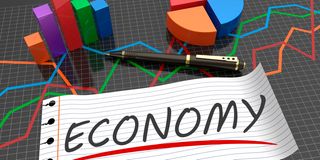
Markets only accurately analyse and respond to the harsh realities at hand rather than rely on political sound-bytes.
A few days ago, I shared a graphic on X comparing the Gross Domestic Product of France ($3.05 trillion) with that of the entire African continent ($3.1 trillion). Simple numbers. But the responses? Anything but simple.
From Nairobi to Lagos, Accra to Cairo, the comments poured in—a digital wildfire of disbelief, frustration and painful realisation.
How, they asked, can a continent of 1.5 billion people so rich in culture, natural resources and raw talent match the economy of a single European country with just 60 million citizens? It was more than a statistic, it was a gut punch.
And yet, behind the anger was a deeper hunger—for change, for answers and action—because Africans are done explaining why we have not “caught up”. We are done apologising for our potential. We are done waiting.
But anger is not a strategy and emotion is not infrastructure. If we want transformation, we must trade outrage for ownership. And we are not the first to face this choice.
Remember the Airbus A380? It was Europe’s moonshot in aviation. When the project was launched, critics scoffed.
Even their rival, Boeing, despite them being competitors for top executives, plainly said this was not a good idea at a time the world was moving towards smaller, fuel-efficient planes. Boeing’s Dreamliner was the darling of the skies.
Yet Europe pushed forward, not because the market begged for it, but because they had something to prove.
The A380 was not just a plane; it was a political statement, a job creator and a leap in aerospace engineering. Factories popped up across Europe. Technology advanced. Thousands of jobs were created.
And even though the plane did not dominate commercially, Europe got richer, smarter and more competitive. Experts say that the plane was not good for the world but was good for the welfare of Europe.
Why does this matter to Africa? Because Europe learned that some projects must be built, not for applause, but for sovereignty. Not for today’s bottom line, but for tomorrow’s bargaining power.
Now look at China. They did not wait for the world’s approval either. In the 1980s, they decided to manufacture at all costs.
Their quality was mocked, tactics were questioned and accusations of dumping and technology theft filled Western headlines. But China did not stop. They kept building. Kept exporting. Kept improving.
Today? They have outpaced the mockery. They own the factories. They produce the solar panels, the smartphones, the electric vehicles.
They created their giants—BYD, Huawei, Xiaomi and many others. And the world had no choice but to adjust.
So when people ask, “If Africa manufactures goods, who will buy them?” the answer is simple: we will, just like China and Europe did. We start by believing in ourselves then by trading with ourselves.
Currently, only 15 per cent of Africa’s trade is intra-continental. Europe’s is nearly 60 per cent. That is not a limitation, it is an opportunity.
The African Continental Free Trade Area could change everything. A single market of African goods, made by Africans, sold to Africans. That is how we grow strong.
But let us not romanticise it. There is a shadow that darkens our dreams: corruption. This is the killer of progress. In country after country, especially in Kenya, we watch billions meant for infrastructure, healthcare and education vanish into offshore accounts or luxury properties in Dubai. No strategy can survive this kind of bleeding.
If this rot is not urgently confronted, Africa will not rise, no matter how powerful our dreams are. We will remain trapped in dependency, exporting raw materials and importing finished products.
And so we must ask the hard question: Will change come through a ballot revolution or will it eventually erupt through a violent one? History shows that when hope is stolen again and again, people eventually find another way to reclaim it, often outside the voting booth.
Africa’s leadership must understand that the choice is theirs, but the patience of the people is not infinite. We have waited for far too long. Now we must build. And this time, we must build without apology.
The writer is a management consultant, whistleblower and active citizen.









